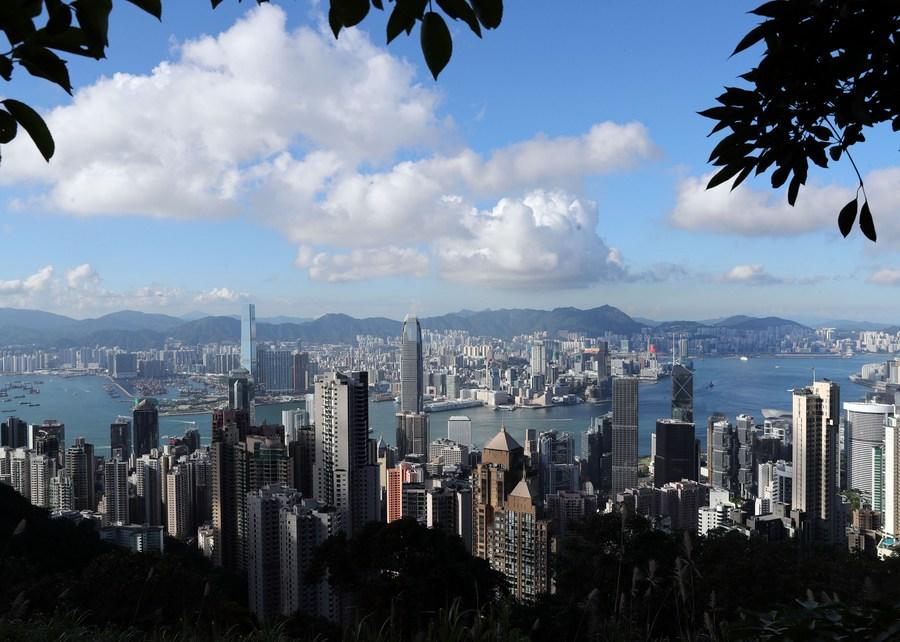

south China, June 11, 2020. [Photo/Xinhua]"/>
The Hong Kong Special Administrative Region will reopen four more border points, allowing a daily total of 60,000 Hong Kong residents to enter the Chinese mainland starting on Sunday, Chief Executive John Lee Ka-chiu said at a media briefing on Thursday.
Among them, 50,000 with advance bookings are expected to pass through three land crossings — the soon to be reopened Lok Ma Chau and Man Kam To, and the currently operating Shenzhen Bay Port.
Lee estimated that a further 10,000 will pass through the four air, sea and bridge ports — the China Ferry Terminal and the Hong Kong-Macao Ferry Terminal, both of which will be reopened, and the currently open Hong Kong International Airport and Hong Kong-Zhuhai-Macao Bridge. The government will control quotas at these entry points by managing the number of tickets available, with no requirement for booking in advance.
Based on the daily quota, Lee estimated that up to 1.8 million Hong Kong residents could return to the mainland in one month and more than 3.6 million over two months.
In addition, no ceiling has been set for the number of mainland residents in Hong Kong permitted to enter the mainland. Similarly, Hong Kong residents on the mainland will not be subject to a quota limitation when returning to the city.
The resumption of normal travel will greatly revitalize Hong Kong's economic activities and help overseas visitors pass through Hong Kong to the mainland, thus enhancing Hong Kong's role as an international metropolis, Lee said.
A booking system for travelers passing through land ports was rolled out at 6 pm on Thursday, allowing travelers to pick a specific checkpoint and a designated time slot before traveling.
Those crossing via the four air, sea and bridge ports can depart the city to enter the mainland as long as they have bus, ship or airplane tickets.
In the first phase, the system will provide booking services for the next eight weeks, from Sunday to March 4. The reservation system is on a first-come, first-served basis. Each applicant can make reservations for up to three companions.
After the Chinese New Year, cross-boundary students can return to Hong Kong daily to resume face-to-face classes in Hong Kong. No advance booking is needed for students.
After reviewing the operation of the first phase, the government will consider reopening more checkpoints, including for high-speed rail, and increasing the quota for travelers.
Secretary for Transport and Logistics Lam Sai-hung said at the media briefing that the Hong Kong section of the high-speed rail will resume service no later than Jan 15, due to the extra time needed by the rail operator to prepare and for employees to familiarize themselves with operations after a three-year suspension of service.
By then, passengers can take high-speed trains from West Kowloon Station to not only Shenzhen North Station and Guangzhou South Station, but also to Guangzhou East Station, Lam said.
After the briefing, the number of Hong Kong travel-related searches on travel platform Tongcheng Travel increased 379 percent, and the number of searches for air tickets to and from Hong Kong increased 287 percent.
Dennis Ng Wang-pun, permanent honorary president of the Chinese Manufacturers' Association of Hong Kong, said the quota is enough for residents to return to their hometowns to celebrate the Chinese New Year.
